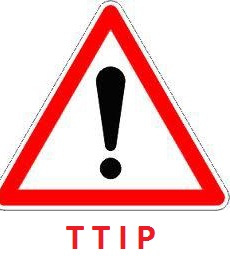Who regulates best, the US or EU? #TTIP

Trade Unions Congress (UK) | 19 Oct 2013
Who regulates best, the US or EU? #TTIP
Owen Tudor
The latest scheduled negotiations about the Transatlantic Trade and Investment Partnership (the EU-US free trade deal, or TTIP) were cancelled because of the US government shutdown. So the lead negotiators, US Trade Representative (USTR) Froman and EU Trade Commissioner de Gucht, didn’t miss the opportunity afforded by the enforced free time to engage in a sparring match on how to handle the different US and EU systems for government regulation (of products, sectors. markets etc.)
This may seem to be a rather theoretical or recondite area of debate, but since tariffs are so low already between the EU and US, it’s how the TTIP addresses regulation that is at the root of the over-exaggerated claims of the impact of the deal. And since the way we regulate the finance sector, corporate ethics or workplace health and safety are pretty crucial issues (not to mention food safety, chemical production and so on), this is an important debate.
In brief, the argument between the US and EU boil down to these key issues:
– who decides on the content and scope of regulations and on what basis are regulations drawn up; and
– how should TTIP change the way regulatory regimes operate.
Both Froman and de Gucht argue that their way is best (I’m paraphrasing for clarity and brevity, but not much!) The USTR argues that the US gives more say to the experts (by which he often means business) and the EU says its way is more democratic. Froman says the US system is based on evidence, whereas the EU defends its precautionary principle (for instance, over GMOs). And the US wants the TTIP to set down how regulatory harmonisation should work (and the development of new regulations) in TTIP, whereas the EU wants to set up a joint body of regulators to oversee future developments. There’s also a mini-spat developing over whether to have ‘horizontal’ or ‘vertical’ regulation (ie regulating across sectors or within them.) I think the latter allows a more case-by-case regulatory approach, which I’d describe as more flexible and appropriate to risk, but I acknowledge that it can lead to inconsistency and repetition.
The US and European trade union movements are less partisan on these issues. Neither of us maintains that our systems are perfect – indeed as the financial crisis showed, neither system worked very well at preventing it! But we don’t want to see any weakening of standards (I’m thinking especially of worker and consumer protection, as well as oversight of financial/corporate behaviour, but the point applies generally.) Froman and deGucht have said they absolutely don’t want that either, but successive trade deals that have in fact done precisely that have made unions cynical and untrusting about such worthy protestations.
Our approach would, for example, mean defending the precautionary principle, although we think the stringency of its application in Europe is being more than a little overplayed: the EU system is rarely as precautionary as we would like it to be. And the US trade unions would prefer the EU REACH system of chemical controls to be extended to the US, rather than harmonised with their own system where regulation of hazardous chemicals has traditionally been bogged down in legal battles for years.
But we certainly don’t want EU regulatory controls on business or finance to be used as an excuse to water down the much fought over Sarbanes-Oxley or Dodd-Frank systems of control. Indeed, we want regulation to be harmonised upwards and in many cases strengthened in both jurisdictions, using the opportunity that TTIP provides for escaping the threat or regulatory arbitrage that has encouraged a global race to the bottom.
Equally important, we don’t want a system which privileges business interests, either by giving them devolved standards-setting powers or accords their views more weight than others. Too many regulatory regimes in both the US and the EU do that now, despite this being painted as a big difference between the two cultures.
We’re fairly ambivalent about whether inclusion of regulatory practice in TTIP would overrule the regulatory systems in other parts of the world (again, I suspect they already do, given the relative power of the EU and US economies), although TTIP would make such dominance more robust than ever. But I can see that our Latin American colleagues in particular, might have a different view: in this area as in so many others, TTIP discussions are treated as if they will only affect the US and EU.
These are just some preliminary thoughts on the issues involved, and our view is likely to evolve over the months of TTIP negotiations that lie ahead. I’d be interested in what others think.





